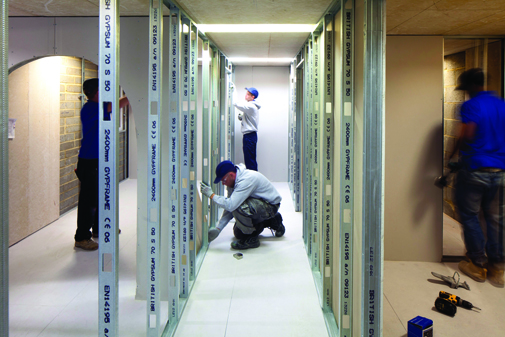Whichever way you look at it there is a fundamental shift taking place in the construction sector. A Conservative government says it now wants to build more homes and claims to be giving the go ahead to get small builders and councils involved in building homes again.
Surely, this move will open up new opportunities for the finishing sector, just at a time when the commercial sector starts to slow. But to build one million new homes by 2020 means the industry has to nearly double its output. Frankly, where are the skilled operatives going to come from to make this aspiration a reality?
The drive to fix the broken housing market when combined with the government’s backing of last year’s Modernise or Die report has given a renewed focus on productivity.
What better time is there, then, for the supply chain to work together and deploy resources in the most cost-effective manner. The old saying of “pre-planning prevents problems” was devised for good reason: working together in partnership works because there is less conflict.
But, sadly, there are signs that as the market tightens and material prices start to rise we hear of the return of that well-used phrase “better buying”. Specialists are again being warned to tread carefully when they commit to a new contract, so it’s a good time to remember that once you’ve made your contractual bed, you’ll have to lie in it (see page 14).
To earn a place at the partnering dining table, finishes and interiors sector specialists will have to reaffirm their position as specialists with a skill set that is unique and the resources and ability to deliver improvements in performance. Last month, FIS president Steve Coley talked about how the new FIS Fit Out Futures skills programme will help overworked, overstretched FIS members train skilled operatives for now and the future. This next generation will need to
consist of both new entrants to the sector and an upskilled existing workforce, and FIS is investing significantly to help and support members, and the industry, in making this happen (see page 16).
All of this is fundamental if our industry is to deliver on the ambitious plans, so it will need to ensure it has the necessary skills at all levels.
Adrian JG Marsh
Editor


